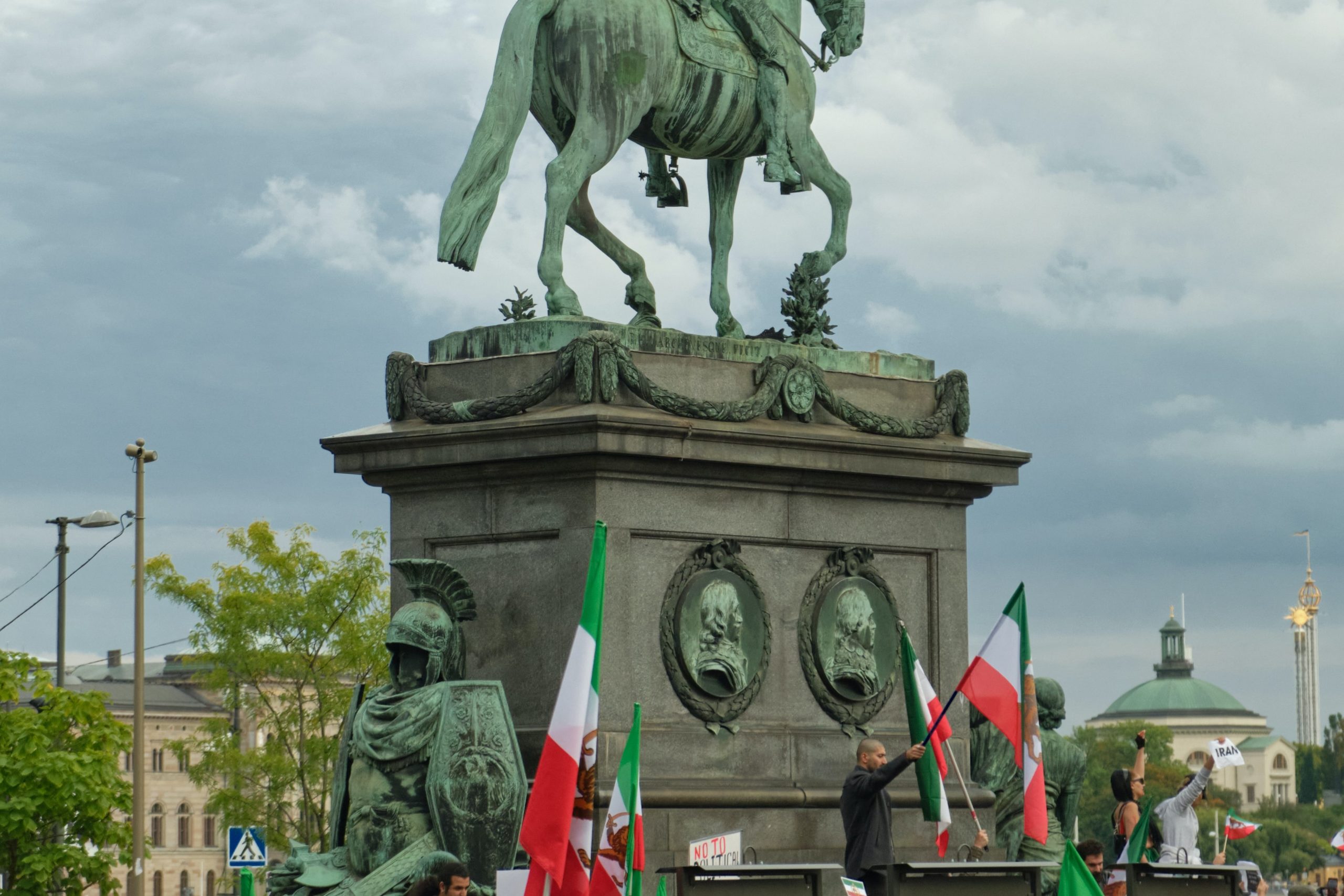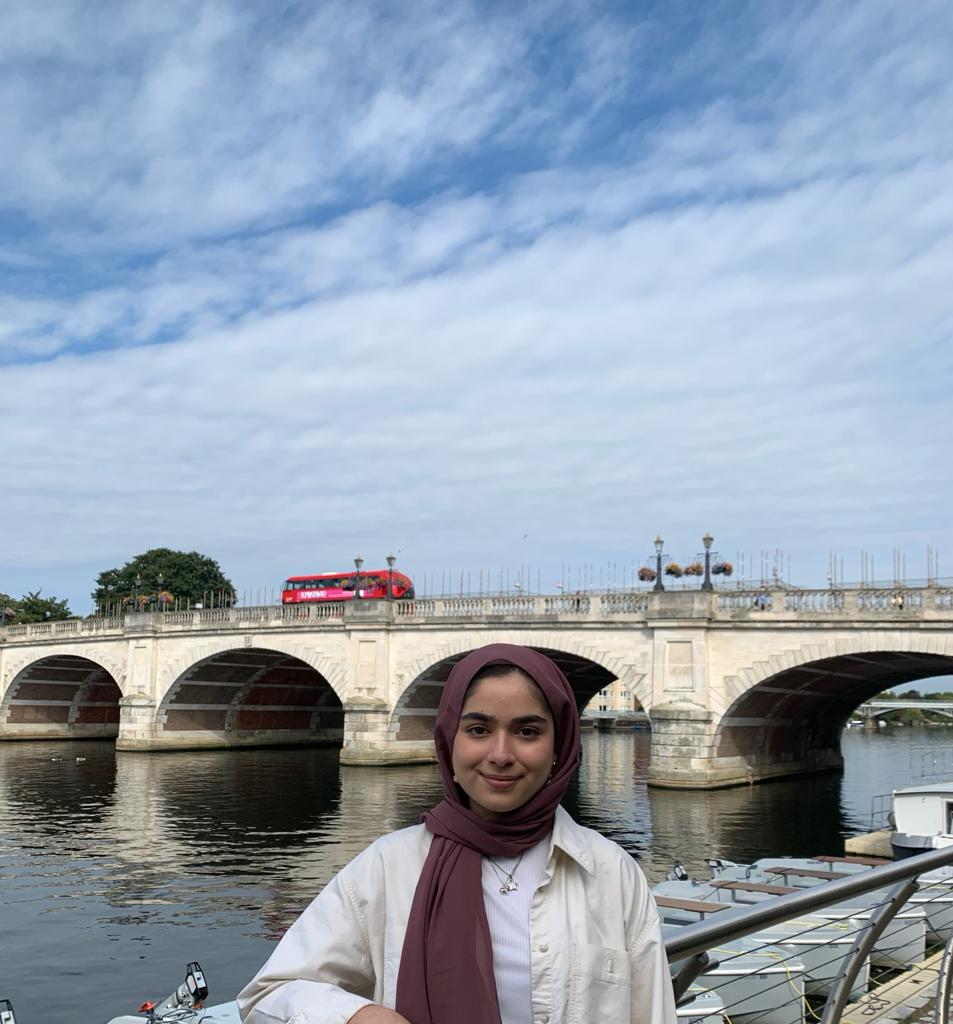King’s Business Review writer Sahar Rabbani reflects on western intervention and the current political crisis in Iran, following a panel discussion with former UK Ambassador to Iran Nicholas Hopton, held for King’s students.
On November 16th, exactly two months after the killing of Jîna Mahsa Amini, the Foreign Policy and Security Conference 2023 group organised a meeting with the former UK ambassador to Iran, Nicholas Hopton. He clarified the role of western governments amid the ongoing protests against the Islamic Republic of Iran.
On September 16th, 22 year-old Jîna Mahsa Amini was arrested by the Iranian Guidance Patrol, and transferred the the Moral Security agency for wearing ‘inappropriate hijab’. She was beaten so severely while detained that she died after being comatose for three days. The unjust killing of Amini lead to widespread national protest, and has sparked international outrage against the Iranian Regime. Her killing has highlighted the experience of an important intersection of oppressed people living in Iran, namely women and ethnic minorities. Many point to Jîna’s Kurdish identity as a huge influence in her death; whilst a multitude of Iranian women are reprimanded for wearing ‘inappropriate hijab’, few die as a result of such grotesque treatment.
This is not the first time that the Iranian people have risen against the regime, nor is it the largest. However, the international response to the situation, exacerbated by social media and internet access, has resulted in extensive news coverage and international attention – unlike many Iranian protests before this one. As national and international outrage increases, an important question arises; will international governments take decisive action against the crimes of the Iranian regime, now it is becoming a focal point for their electorate?
In Conversation with Nicholas Hopton
Nicholas Hopton begins the conference by reminding attendees that the UK has already taken a stand through collective Western sanctioning of Iranian assets, supported by the government’s public statement in support for the protestors’ struggle against the Iranian Republic.
Although it is imperative that civil resistance be led by the people as a united group, many have expected more from Western powers. Even Hopton himself underlined that change in Iran is usually invoked only when there is “an alignment of what’s going on domestically […] with external pressure.” External pressure, particularly in relation to the issues of women’s rights in the global south, was once boasted by Western powers. It was just 20 years ago when the West had a collective response to a similar violation of women’s rights in Afghanistan. Much of the American and British involvement in Afghanistan was publicised as a “fight for the rights of Afghan women”, with the infamous saying that the West must “free Afghan women from the burqa”. It becomes easy for us to question where this sentiment is now in the case of Iran.
Hopton clarified that what was holding Britain back from making a more robust stand against the ongoing humanitarian breaches was the Iranian government’s allyship with Russia in their war against Ukraine. “The way that the Islamic Republic is supporting Russia and Ukraine, sending drones, adds another layer of complexity to the situation.” The Iranian government has sold approximately 2,400 drones to Moscow, used in the conflict with Ukraine that caused numerous civilian casualties, the obliteration of power stations, and destruction of civilian infrastructure. Hopton claims that this alliance is what makes “chance for a joint effort [in western support of the protests] is very slim.” It seems unreasonable; the people of Iran are arguably being punished for living under a government that they have not elected.
“Iran is less important in the eyes of the world at the moment, than Ukraine”, he adds. Pitting two nations struggles against one another is counterintuitive, and yet it seems that major Western powers have no issue with doing so in order to decide which they are ready to intervene and collaborate with. The West has contradicted itself in their self-proclaimed role as ‘champions’ of human rights, given its present absence in Iran. This casts a new light upon previous interventions; there was no benchmark for a level of injustice that warranted intervention. Western humanitarian justice seems to be dependent upon the geopolitical importance of it to its allies. By no means should this imply that Western intervention is the sole solution to issues in the global South. The recent US decision that spearheaded the subsequent withdrawal of all western forces in Afghanistan, and the nation’s immediate fall to Taliban governance that followed, is a clear example of how Western intervention was never intended to serve the rights of the people it claimed to protect. The conversation that had unfolded with Nicholas Hopton simply allows for a reflection upon prior actions from leading Western governments.
The situation in Iran is not stable. The severity of the situation has increased, and the regime’s crackdown on protestors has caused 227 of the 290 members of Iran’s parliament to demand for “decisive action” against those who have incited protests, including the death penalty as a punishment for their crimes against the state. At the time of writing, four people have been sentenced to death in connection with the anti-government protests. Hopton commented that the potential for international collaboration “depends if [the regime’s reaction to the protests] becomes much more bloody and quite clearly desperate – the perhaps some of the countries in the middle may shift, which also depends on their positioning with Ukraine…”; suggesting that the situation may call for external action, but we won’t see the Western superpowers heading it.
As people in Iran are risking their lives in fighting for a just government, the former UK Ambassador reminds us, “never forget how important Iran is to the global energy mix”. In just over 40 years since the UK and US have instated the Islamic Regime in Iran in a pursuit of international energy security policy, we see those same hands relinquishing themselves from the responsibility of their actions. We must consider whether the West truly value the lives and safety of oppressed citizens in countries such as Iran, or if the Middle East simply acts as a convenient backdrop for Western moral crusades.






0 Comments